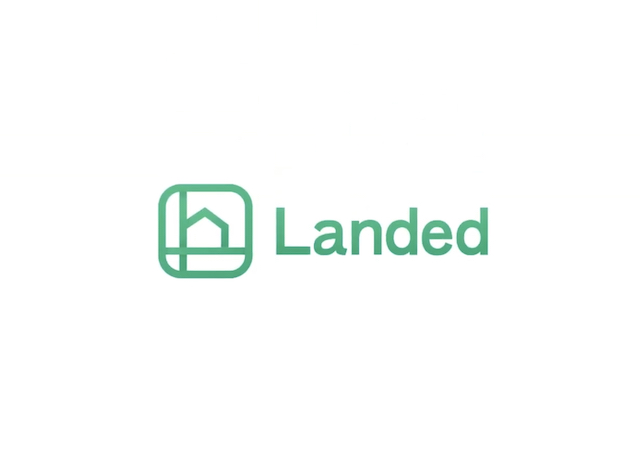In a work session primarily focused on housing, the Town Board heard from a fintech firm that funds mortgage down payments for “essential professionals” in exchange for a share of their homes’ appreciated value.
Landed is a for-profit California-based firm backed by TIAA and the Chan Zuckerberg Initiative (among other institutional and philanthropic investors). It offers shared appreciation agreements to educators, healthcare professionals, and government employees. In other words, workers with reliable jobs in mainly tax-funded sectors.
Landed will invest up to 15 percent of a home’s value (with a cap of $150,000) to assist would-be buyers in getting to the 20 percent down payment threshold for home loans that don’t require private mortgage insurance. To reach these employees, the company engages in marketing via their employers.
Landed says it has created 1,100 such agreements since it launched in San Francisco in 2015, investing $67 million. Company rep Lani Fa joined the work session via Zoom at the invitation of Liz Hanley, chair of the Community Housing Fund Advisory Board. Hanley said Landed offers “a separate and private program that could be done in concert and alongside anything we’re doing with the Town.”
In addition to the Town Board, Shelter Island School Superintendent Brian Doelger was present for Fa’s pitch.
The board also talked about CH-FAB’s ongoing efforts to get public input as the committee develops the Town’s Community Housing Plan. Read more in this Gazette post.
How it works
Once an entity signs on with Landed, the program is available to employees who clock at least 20 hours per week, Fa said. Apart from marketing, the employer plays no further role. While Landed has no income restrictions (beyond those imposed by the mortgage lender), participants must agree to remain with their current employers for at least two years.
The firm typically provides up to 10 percent of the purchase price, Fa said. But here in New York, it can provide up to 15 percent with a cap of $150,000. In all cases, buyers must provide at least 5 percent of the purchase price toward the downpayment. The goal is to “help home buyers reach that 20 percent mark,” he said.
Landed is motivated to help buyers “build equity,” Fa said.
The company secures its financial interests with a lien on the property. The investment is not considered a loan. There is no monthly fee. Instead, upon repayment — when the house is sold or refinanced — the homeowner reimburses Landed’s initial stake plus a (potentially hefty) share of the appreciated value.
According to its agreements, Landed is entitled to 3.3 percent* of the appreciated value for every 1 percent of its investment. Payback can occur anytime after two years through the agreement’s end at 30 years, Fa said.
Here’s an example using a $1 million home (now the average on Shelter Island):
- Landed supplies $150,000 toward the downpayment (15 percent), and the homebuyer agrees to repay that investment plus 49.5 percent of any appreciated value (15 x 3.3 = 49.5)
- When the home later sells for $1.2 million, Landed gets back it’s $150,000 plus 49.5 percent of the $200,000 gain — that’s $150,000 + $99,000 = $249,000
While other fintech firms offer similar programs, Hanley, an accountant, pointed out that Landed is the only one she could find for new home purchases that also agrees to absorb a share in the home’s loss. Back to the $1 million example:
- The home loses value — let’s say it sells for $800,000
- The homeowner pays Landed the original $150,000 stake minus a 49.5 percent share of the loss — that’s $150,000 – $99,000 = $51,000
Fa said Landed repayments typically occur after three to five years and usually are voluntary — the homeowner sells the house or refinances the mortgage.
However, some triggers may force a settlement: if you quit and aren’t re-employed; if you change jobs to work with a non-Landed partner employer, and at the 30-year mark. In such cases, you may be expected to either sell or re-finance the home or repay Landed based on an independent assessor’s valuation of its worth.
“In no way do we want to get any essential professional out of their home,” Fa told the Town Board. “Landed has never done that.”
[* Editor’s note: When Hanley first mentioned Landed a few weeks ago, we looked at the company website. At that time, the payback was 2.5 percent per 1 percent of an investment. However, landed announced July 7 that it was boosting that to 3.3 percent per 1 percent of the investment, citing housing market volatility.]
Additional caveats
If the Town or school district agrees to work in what Landed calls “an awareness partnership,” the company will craft an email that Town or school will send to employees. There’s no contract or memorandum of understanding, Fa said. On its website, Landed said it “simply asks that employers commit to sharing out Landed resources with employees.”
As Town Board members noted, there are additional caveats. Particularly worth noting: buyers must use a Landed partner lender (TD and Truist banks are listed as approved NY lenders) and a Landed partner real estate broker.
These brokers agree to provide Landed with a closing fee of 1.25 percent of the property’s value; money comes from their broker fees. So if you don’t use a Landed broker, you have to pay the 1.25 percent fee at closing. In the $1 million example outlined above, that’s $12,500.
While getting to the 20 percent threshold helps homebuyers avoid paying for private mortgage insurance, these Landed requirements reduce a buyer’s capacity to negotiate with banks on lending rates and points and with real estate brokers on fees.
Hanley, who leads the committee developing the Town’s Community Housing Plan, pointed out that no one solution will fit the needs of all homebuyers, and Tuesday’s presentation wasn’t an endorsement.
But if Town or school officials do sign on, would-be homebuyers should read offers and agreements carefully and preferably with the support of an attorney and an independent financial adviser.
A look at Landed’s Q&As
While Landed shares in gain and absorbs some of the loss, it isn’t responsible for the homeowner’s ongoing costs, such as insurance or property taxes. A quick look at the firm’s Q&As turned up these other finer points:
- You have to notify Landed well in advance of your intention to sell or before making any improvements to the property to ensure you retain the total value at the time of repayment
- Only work that adds habitable square footage is eligible for full credit, and Landed requires an independent appraisal to determine the value at the time of construction
- You’re required to maintain the home in the condition it was purchased in and “keep major components of the home serviceable”
- Buyers may further be required at their own expense to correct issues discovered in property inspections during the approval process
- While you have no tax liability for Landed’s share of the down payment, the company says you may incur tax liability when exiting the agreement
Moreover, Landed bases a home’s gain or loss in value against its Beginning Property Value assessment, which generally relies on the lender’s appraisal but may vary from the market value. You can find out more about Landed on the company’s website, landed.com.





